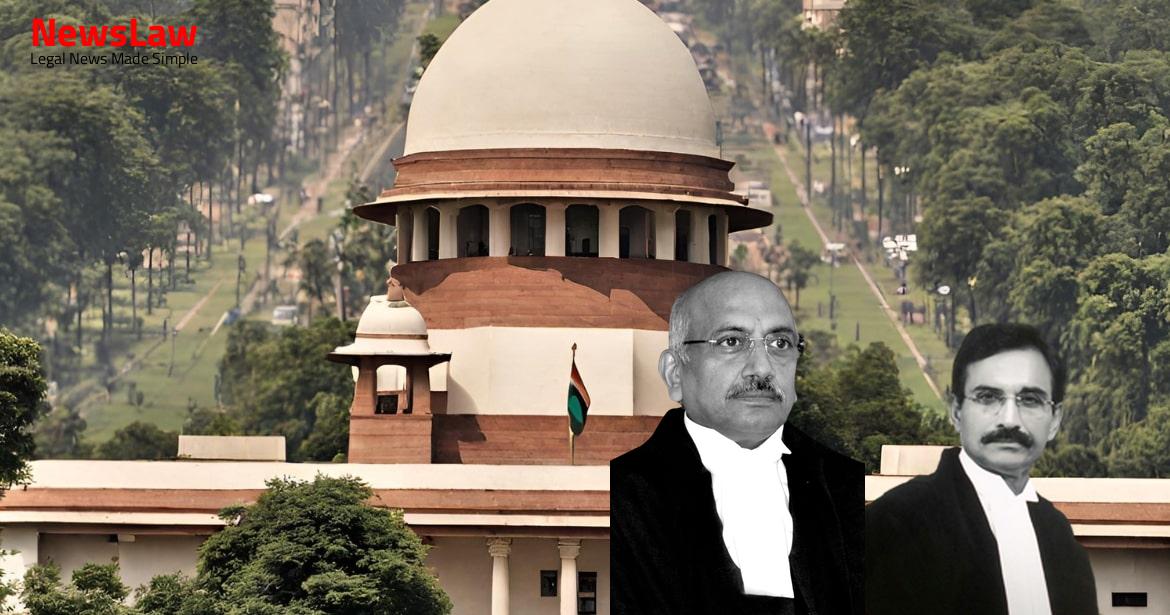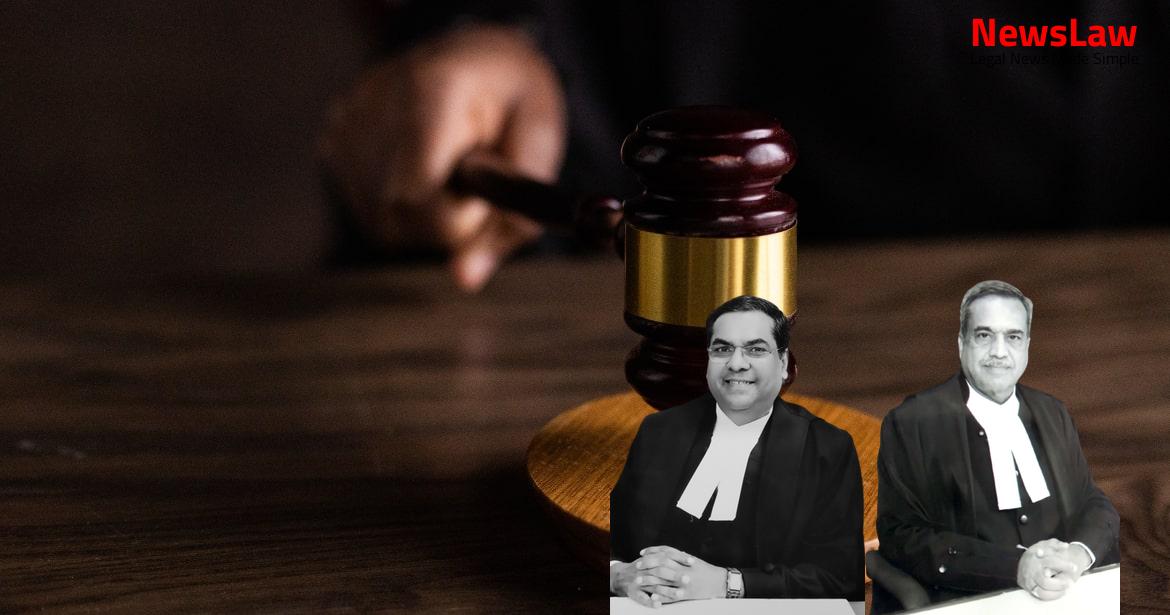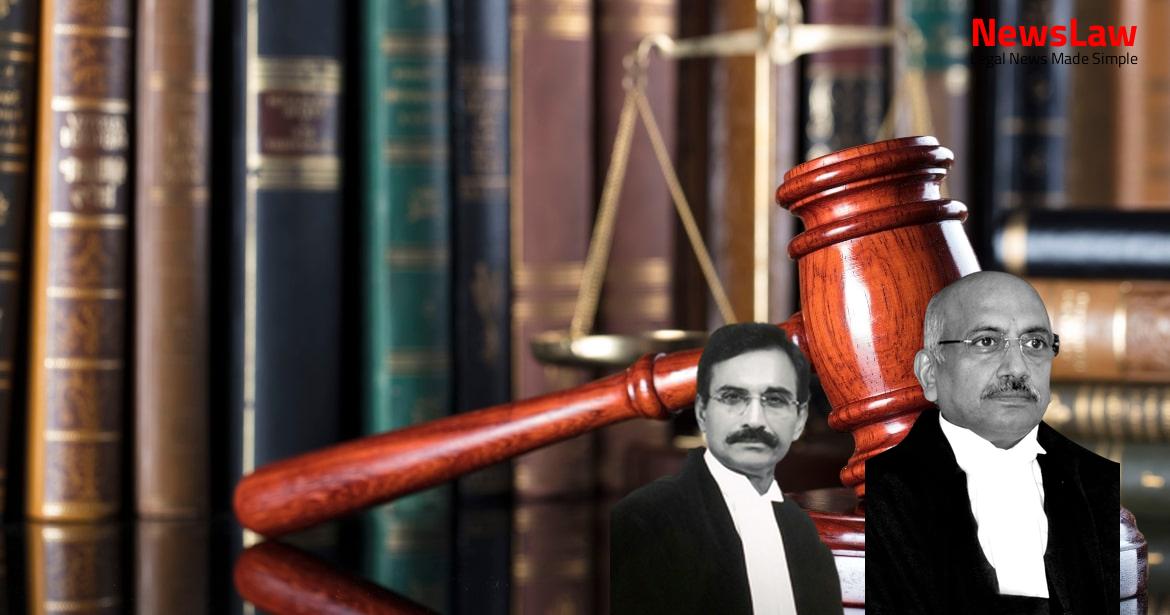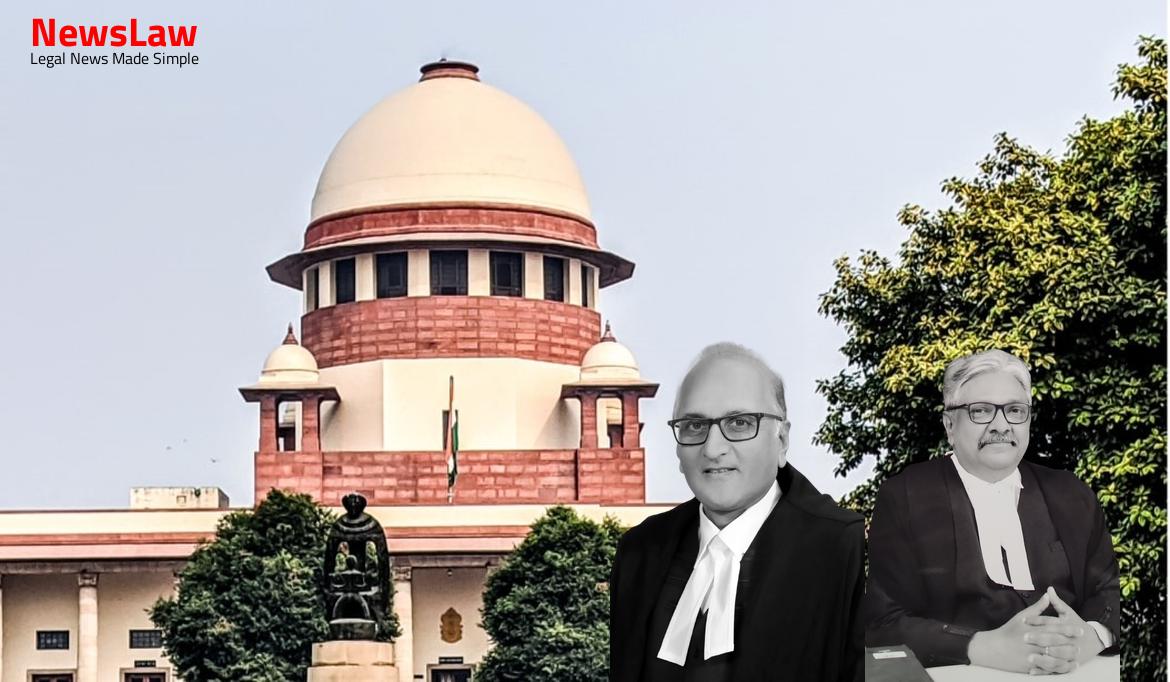In a recent judgment by the Supreme Court of India, the dismissal of Junior Engineer Sri. C. Nagaraju from the Karnataka Electricity Board Employees Regulations has been under scrutiny. The case involves the demand and acceptance of illegal gratification in providing electrical power supply, leading to Nagaraju’s dismissal from service. Despite being acquitted in a criminal court, the Appellant Authority upheld the dismissal, sparking a legal battle. Let’s delve into the details of the case surrounding the allegations of illegal gratification and the subsequent dismissal post-acquittal.
Facts
- DBE Sri. C. Nagaraju, a Junior Engineer at KEB, was charged with demanding and accepting illegal gratification from a contractor for providing electrical power supply in 1998.
- The charge against Nagaraju was proven in an inquiry conducted by Lokayukta.
- The Inquiry Officer found Nagaraju guilty of the charge, leading to his dismissal from service under the Karnataka Electricity Board Employees Regulations.
- Despite being acquitted by the Criminal Court due to witness turning hostile, Nagaraju’s dismissal from service was upheld by the Appellant Authority.
- The High Court allowed a writ petition filed by Nagaraju, stating that his dismissal after being found not guilty in the Criminal Court was unjust.
- The High Court’s decision was supported by the Division Bench, emphasizing that dismissal should not have occurred post-acquittal in the Criminal Court.
- The Disciplinary Authority found Original Name not fit to continue in service due to the gravity of the misconduct in demanding and accepting illegal gratification.
- Acquittal by a criminal court does not prevent an employer from conducting departmental proceedings as per the rules and regulations.
Also Read: Supreme Court Ruling on Dowry Harassment and Suicide Case
Arguments
- Acquittal by a Criminal Court does not bar a departmental proceeding.
- Standard of proof in a criminal trial is different from what is required for a departmental proceeding.
- Strict rules of evidence are followed in criminal proceedings, whereas preponderance of probabilities is considered in a departmental inquiry.
- The essence of the charge in the criminal trial and the departmental inquiry is declared to be the same by the petitioner.
- The Departmental Authorities are deemed bound by the judgment of the Criminal Court, as supported by the petitioner.
- Allegations of demand and acceptance of illegal gratification against the Respondent have been refuted by the petitioner.
- In a complaint, it was alleged that the Respondent demanded a bribe of Rs.1250 for providing an electricity connection.
- Reliance was placed on specific judgments in support of the petitioner’s arguments.
- The Respondent’s counsel justified the High Court judgments, stating that an order of dismissal post honorable acquittal is unjustifiable.
- Mr. Chandrasekhar, an electrical contractor, lodged a complaint regarding an application for an electrical connection for his client, Mrs. Savithri.
- It is argued that the evidence from the departmental inquiry is insufficient to justify the penalty of dismissal from service.
Also Read: Case of Technical Equipment Officer Appointment Criteria Dispute
Analysis
- The evidence in the Departmental Inquiry is different from that in the criminal trial.
- The judgments in Captain M. Paul Anthony and G.M. Tank cases were relied upon by the High Court.
- The two proceedings, criminal and departmental, operate in different fields with different objectives.
- It is necessary to examine if the judgments in Captain M. Paul Anthony and G.M. Tank cases are applicable to this case.
- The standard of proof and rules governing inquiry and trial in departmental proceedings and criminal cases are significantly distinct.
- If departmental proceedings and criminal case are based on similar facts, it is desirable to stay the inquiry until the conclusion of the criminal case.
- In the Captain M. Paul Anthony case, interference with the order of dismissal was considered unwarranted as the evidence was different in the criminal trial and departmental inquiry.
- The Labor Court’s decision was not supported by the judgment in Captain M. Paul Anthony case due to lack of evidence in the criminal trial.
- The Disciplinary Authority is not bound by the judgment of the Criminal Court if the evidence in the Departmental Inquiry is different.
- The standard of proof in a Departmental Inquiry is not strictly based on the rules of evidence.
- Order of dismissal based on evidence before the Inquiry Officer in the disciplinary proceedings was justified and needed no interference by the High Court.
- The Appeal was allowed based on the above reasons.
- Acquittal by a Criminal Court does not prevent a Departmental Inquiry against the delinquent officer.
- Dismissal order was based on a report of the Inquiry Officer with ample evidence against the delinquent officer.
- In Krishnakali Tea Estate v. Akhil Bhartiya Chah Mazdoor Sangh, the issue was the validity of terminating the services of workers after their acquittal by the Criminal Court.
Also Read: Supreme Court Judgement on Transfer of Mining Environmental Clearances
Case Title: KARNATAKA POWER TRANS.CORP. LTD. REPRESENTED BY MANAGING DIRECTOR (ADMIN AND HR) Vs. SRI C NAGARAJU
Case Number: C.A. No.-007279-007279 / 2019



